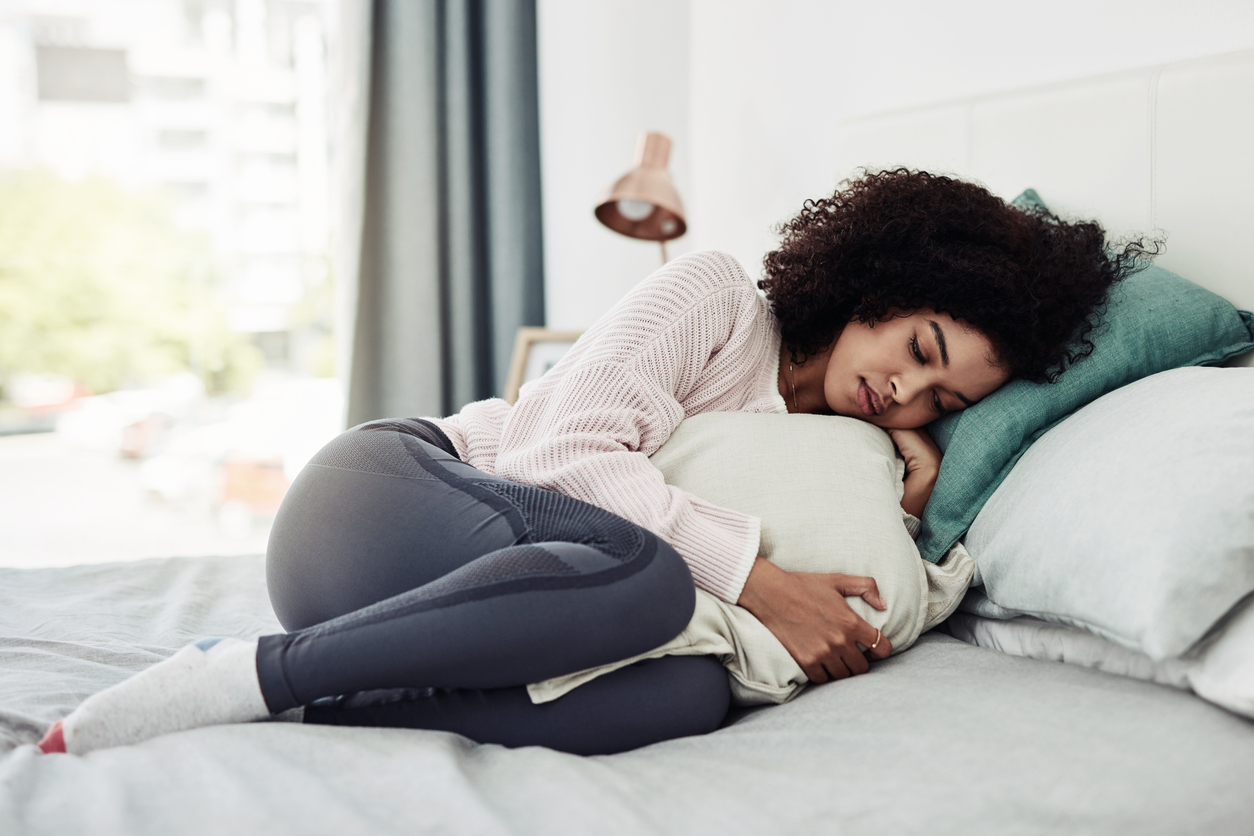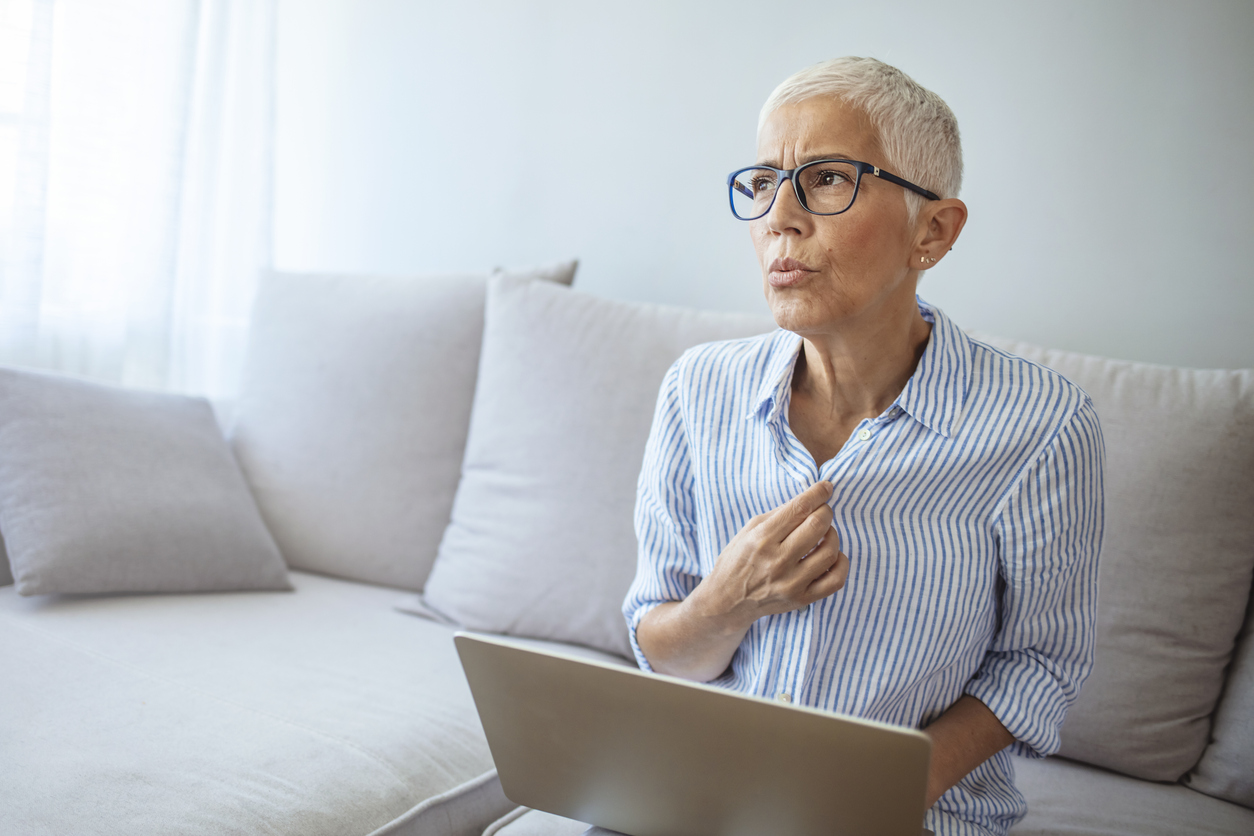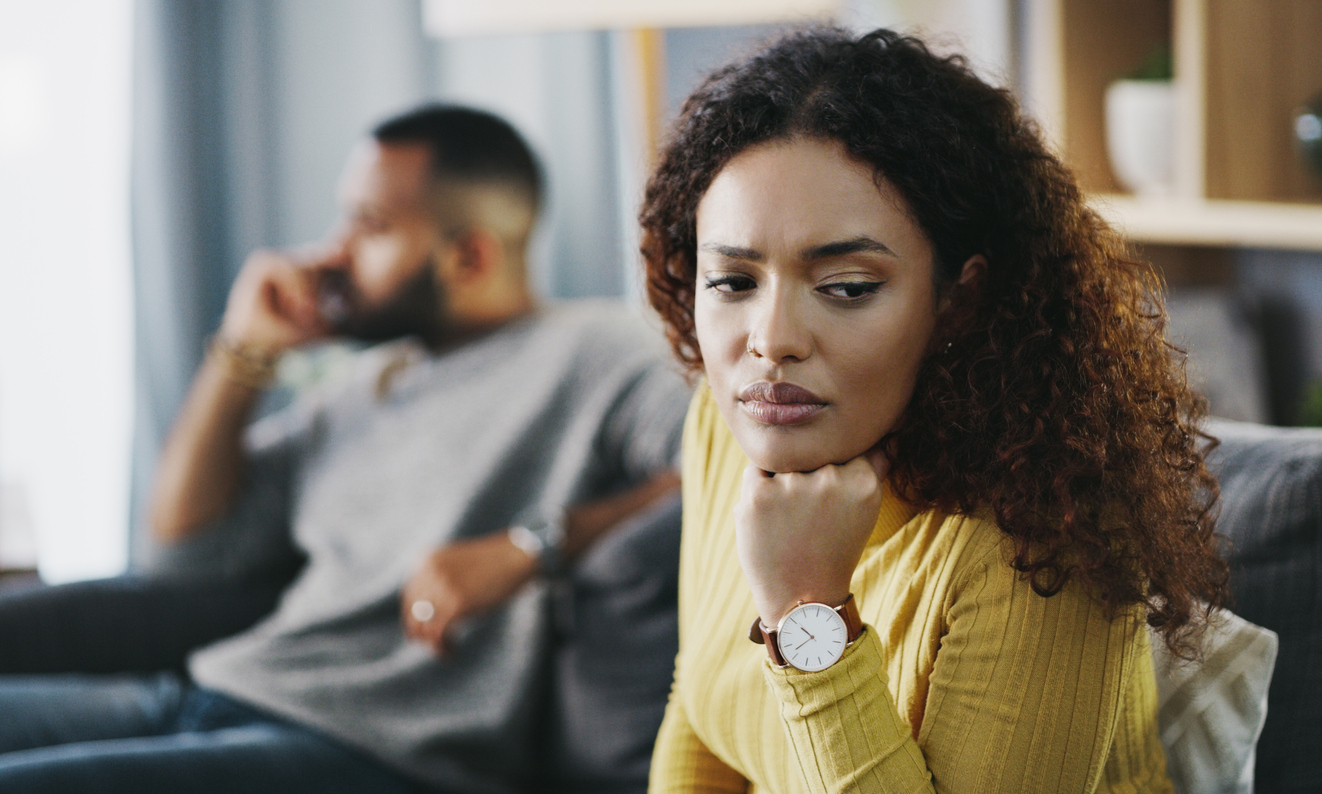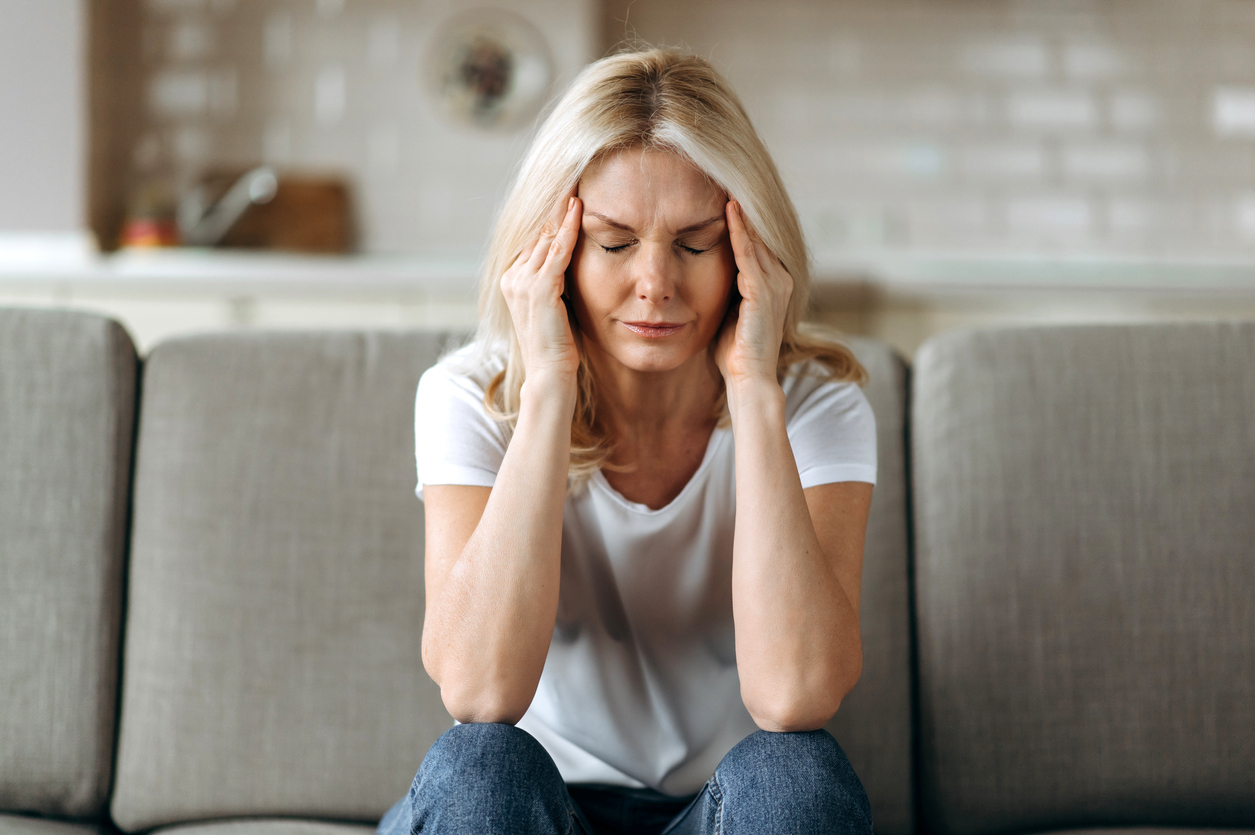7 Subtle Signs You’re Already in Perimenopause, According to an OB-GYN

Do you know the basic facts about perimenopause—when it starts, what it is, or how it feels? Many women don’t. In fact, according to Statista, 44 percent of women around the globe weren’t aware of perimenopause until they started to experience it, and 34 percent of women don’t know that perimenopause exists.
For the record, “Perimenopause means ‘around menopause’ and refers to the time during which your body makes the natural transition to menopause, marking the end of the reproductive years.” That’s per the Mayo Clinic, whose experts explain that the female hormone estrogen “rises and falls unevenly” when perimenopause is taking place. “Once you’ve gone through 12 consecutive months without a menstrual period, you’ve officially reached menopause, and the perimenopause period is over,” says the site.
So you’re in menopause when your monthly period has been AWOL for a solid year—but how do you know when you’re in the phase before menopause? Jessica Shepherd, MD, board-certified OB-GYN and co-founder of menopause wellness brand StellaVia, tells Best Life readers what to watch for. Read on for seven signs that you may be experiencing this life transition, which half the population will experience, if they haven’t yet.
Disclosure: This post is not supported by affiliate partnerships. Any products linked here are strictly for editorial purposes and will not garner a commission.
READ THIS NEXT: Paulina Porizkova Says This Is the Secret to Staying in Shape After Menopause.
1
Irregular periods

Leading up to the time when your period stops altogether, irregularity will manifest in different ways. “As ovulation becomes less frequent and more unreliable, the length of time between periods may be longer or shorter, your flow may be light to heavy, and you may skip some periods,” says Shepherd. However, it’s important to note that bleeding between periods can have other causes, and may even signal cervical cancer—so be sure and get checked out by your doctor or midwife if you experience this symptom.
2
Hot flashes

Many people associate hot flashes with menopause, but this sudden, intense feeling of heat can happen during perimenopause, too. “Hot flashes are due to changes in both hormones and also thermoregulators in the nervous system, and can start to occur during perimenopause,” Shepherd explains. “When hot flashes occur, blood vessels near the skin widen to cool you off, making you break out in a sweat.” Using a product like StellaVia’s Hot Flash Spritz can help cool things down, Shepherd says. It contains “organic aloe leaf juice to help with cooling and moisturizing, glycerin to soothe skin and promote healing, and refreshing eucalyptol,” she explains.
READ THIS NEXT: 73 Percent of Women Over 40 Are Ignoring These Symptoms, Study Shows.
3
Vaginal dryness

Those changing hormones have an effect on the both the vagina and the vulva, reports the North American Menopause Society (NAMS). “Less estrogen may cause the tissues of the vulva and the lining of the vagina to become thinner, drier, and less elastic or flexible—a condition known as ‘vulvovaginal atrophy,’” explains the site. “Vaginal secretions are reduced, resulting in decreased lubrication.”
Vaginal dryness can be addressed in several ways, including prescription medicines and remedies, pelvic floor exercises, lubricants, and moisturizers, according to WebMD. “One of the best ways to reduce vaginal dryness is to use a vaginal moisturizer,” advises the site. “These are special moisturizers that are designed specifically for this sensitive area of the body.” Shepherd recommends StellaVia’s SuperBotanical V Cream formula for addressing thinning vaginal tissue that causes dryness.
4
Mood changes

Those hormonal changes are again to blame, this time for mood swings. “Perimenopausal mood changes that can be erratic may feel significantly different than your typical anger or frustration,” Shepherd says. “You may go from feeling stable to feeling intensely resentful or irritated in a matter of moments.” And in case you need any outside input (but even if you don’t), “Your family members or friends may also notice that you have less patience than you usually do,” cautions Shepherd.
For more health news sent directly to your inbox, sign up for our daily newsletter.
5
Changes in libido

Vaginal dryness can result in reduced sexual enjoyment for women. “Sex may be uncomfortable or even painful,” reports MedicalNewsToday. However, it’s not the only factor involved in libido changes. The stress, depression, and discomfort potentially caused by perimenopause can also have this effect. “There are several steps a woman can take to increase her libido,” says MedicalNewsToday. “These include medical treatments, lifestyle changes, and home remedies.”
6
Sleep problems

Insomnia can happen to anyone, and is stressful to deal with. But Grace Pien, MD, MSCE tells Johns Hopkins Medicine that “poor sleep quality and sleep disturbance are lesser-known changes during this phase of life.” Sleep disturbances that occur during perimenopause may be caused by hot flashes, sleep apnea, depression, and stress, says Pien.
“There are steps you can take to get better sleep,” according to Pien. These approaches include medication, hormone therapies, and even exercise. “We see that athletes, for example, tend to be highly efficient sleepers,” Pien asys. “But even for those of us who aren’t professional athletes, exercise can help with sleep quality.”
7
Headaches

Many women suffer from headaches during their menstrual periods due to fluctuating hormones. And with the ups and downs of perimenopause, these headaches can get worse.
“Perimenopause… often means big changes in hormone levels,” says Healthline. “As such, people with migraine who are in perimenopause may experience changes in the number and severity of their migraine headaches.” The good news for some? “Once perimenopause is over and menopause begins, migraine attacks tend to decrease for many people,” Healthline reports. “In one review of studies, researchers found that as many as 50 to 60 percent of people saw improvement in migraine symptoms after natural menopause.”